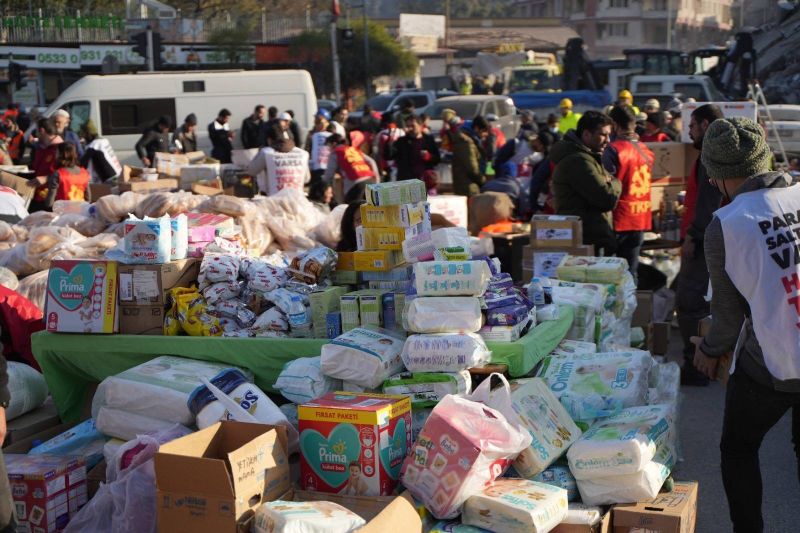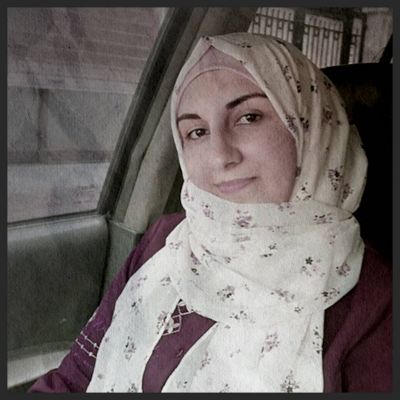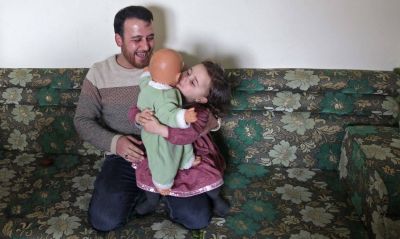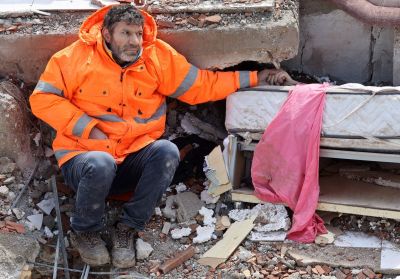
Volunteers organizing the aid received for the disaster victims in Antioch. (Credit: Mohamad Yassin/L'Orient Today)
With chances of finding survivors decreasing by the minute, anger has grown towards Turkish authorities who have been accused of being slow to provide emergency relief, failing to equally distribute humanitarian aid and responding unevenly to the regions affected.
The 7.8 magnitude earthquake that hit Turkey and Syria last Monday has claimed the lives of more than 35,000 people and left many survivors to fend for themselves.
Although numerous national and international rescue teams have been deployed to the scene, many denounced the lack of coordination among the groups on the ground.
“No area has received sufficient help from official entities,” said Murad Akincilar, project coordinator of several citizens’ organizations in the Kurdish-majority city of Diyarbakir, which was severely damaged by the earthquake.
“We have no news about nearly 200,000 people. Only 10 percent of the rubble was cleared. The authorities are channeling official aid to the Directorate of Religious Affairs and blocking aid from [reaching] civil society,” said Akincilar.
Faced with the state’s negligence, Turkish citizens have doubled their efforts to help on the ground and from abroad.
Images of the tragedy have mobilized the 20 million people in the Turkish diaspora with fundraisers taking place all over the world. Many in the diaspora have expressed suspicion that the Turkish authorities might misuse aid.
Informal fundraising
Ayşe Baltacıoğlu-Brammer, a Turkish professor at New York University, said she was “devastated” by the images but that her sadness quickly turned into anger.
“I thought of my American friends, my colleagues. If they want to donate, where are they going to go, how are they going to help people if they don’t have connections in the area? Probably to the Red Crescent, to government-run or incepted organizations... I couldn’t stand it because I neither trust the government nor the institutions it runs,” she said.
So, in order to help her relatives, Baltacıoğlu-Brammer opted for an informal system. A few hours after the first tremors, Baltacıoğlu-Brammer launched a fundraising campaign on her Twitter account and assured that the funds would be channeled “directly to the affected families.”
The campaign raised more than $26,000 on Sunday, much more than she had hoped for.
“This money will be needed as the rubble is cleared and people begin to rebuild their lives. There will be a growing need for cash.”
The professor said she has already helped about 20 affected families with cash money they received through trusted sources on the ground.
“We make no distinction of any kind based on ethnic origin, language, political affiliations or any other question related to the identity of the victims,” she said, mentioning that some of the destroyed areas are inhabited by impoverished minorities historically neglected by the Turkish government.
Impunity
Like Baltacıoğlu-Brammer, many prefer to circumvent Turkish organizations affiliated with the government when giving aid. This is due to official corruption, which according to Baltacıoğlu-Brammer, has only become clearer given their failure to adequately respond to the tragedy.
In 1999, an earthquake struck Izmit, causing 18,000 deaths. After the tragedy, the construction sector was forced to adopt new seismic hazard building standards.
“I was furious when I saw that many of the collapsed buildings in southeast Turkey were recently built. Many of them had trendy names like the ‘Plaza’ or ‘Residence’ to make them look chic, but in fact they were just paper houses,” said the researcher, whose family members living in the affected areas were unable to return to their destroyed apartments.
“The construction sector is made up exclusively of companies that finance the two ruling parties [the right-wing and far-right coalition that support President Recep Tayyip Erdogan]. They enjoy enormous advantages and almost total impunity,” said NGO worker Akincilar, who sees this as the reason for such negligence.
The Turkish Justice Ministry tried to counter these accusations on Saturday, ordering investigations into “seismic crimes” to initiate criminal proceedings against all “developers and those responsible” for the collapse of buildings — where the laws that have been in force since 1999.
But the damage is done.
The government allegedly responded to criticism on social media with suppression. On Tuesday, the Turkish government was accused of temporarily restricting internet connection in the affected areas, despite the importance of digital platforms in directing rescue efforts.
Some people are redirecting their confidence away from the ruling authorities. One testament to this is the growing popularity of Haluk Levent, a Turkish pop star who was famous in the 1990s and founder of Ahbap (Friends), an NGO created in 2017 and operating in 68 cities across the country.
Ahbap has been attracting donations from all over the world and many Turks have compared the NGO with the government’s Disaster and Emergency Management Authority (AFAD) to emphasize the latter’s incompetence.
The accusations angered Turkey’s president Erdogan, who hopes to be reelected in May. Although he acknowledged some “shortcomings” in crisis management, he deflected recent criticism.
During a trip to the southern province Kahramanmaraş last Wednesday, Erdogan said: “Some dishonest and dishonorable people made false statements including ‘we did not see any soldier or police.’ Our soldiers and police are honorable people, we are not going to let the disreputable speak of them like that.”
This article was originally published in French in L'Orient Le-Jour. Translation by Joelle El Khoury.
The 7.8 magnitude earthquake that hit Turkey and Syria last Monday has claimed the lives of more than 35,000 people and left many...


